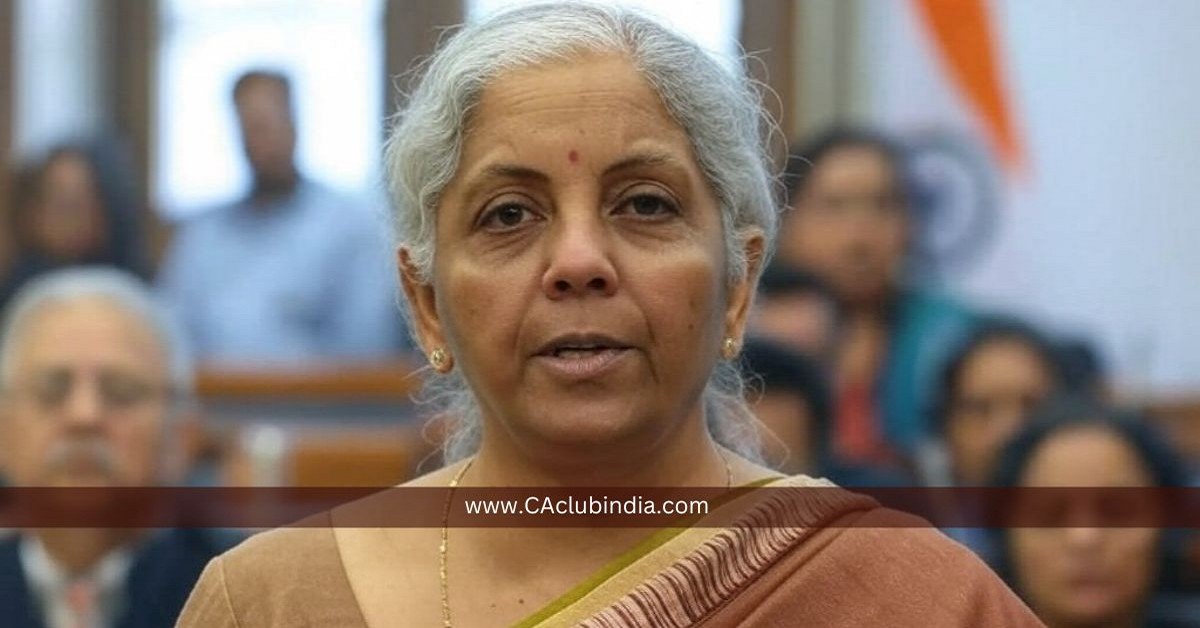Amid growing concerns from southern states over the perceived unfair distribution of tax revenues, Finance Minister Nirmala Sitharaman has emphasized that it is the Finance Commission, not the central government, that determines the devolution of taxes. She urged the aggrieved states to directly engage with the 16th Finance Commission, whose recommendations will shape the distribution of funds for the next five years.

Southern States' Concerns Over Population-Based Devolution
The core of the dispute lies in the population-based criteria used by Finance Commissions to determine tax revenue allocation. Southern states like Andhra Pradesh, Telangana, Tamil Nadu, Karnataka, and Kerala argue that their success in controlling population growth has inadvertently led to a reduced share of tax revenues, especially when compared to northern states experiencing higher population growth.
During an interview with PTI, Sitharaman clarified, "The central government does not decide on the devolution formula. The devolution of taxes is made in accordance with the recommendations of the Finance Commission, and the aggrieved southern states should approach the panel for a change in parameters."
Declining Share of Southern States in Tax Devolution
The share of southern states in tax devolution has seen a notable decline over recent years:
- 2014-15: 18.62% (14th Finance Commission)
- 2015-16: 18.04% (15th Finance Commission)
- 2021-22 to 2024-25: 15.8%
This drop coincides with the 15th Finance Commission's shift to using the 2011 Census data for population weightage, as opposed to the 1971 Census data used by previous commissions. The states argue that this shift penalizes those who have effectively implemented population control measures.
Centre's Role and Finance Commission's Autonomy
Sitharaman reiterated the autonomous role of the Finance Commission in deciding the distribution of funds. "It is not appropriate for the states to voice concerns against the Centre, as we follow the Finance Commission's core recommendations," she stated.
She encouraged the states to highlight their unique circumstances to the 16th Finance Commission, chaired by Arvind Panagariya, which will submit its report by October 31, 2025.
Historical Context: Changes in Devolution Ratios
The 13th Finance Commission recommended tax devolution for 2010-2015, while the 14th Finance Commission notably increased the states' share from 32% to 42%. However, the 15th Finance Commission reduced this share to 41%, sparking debates over resource allocation fairness.
When questioned about whether some states should encourage higher birth rates to secure a larger share of tax revenues, Sitharaman refrained from commenting directly, stating, "Whatever their point of view is should be communicated to the Finance Commission."
Key Takeaways:
- Finance Commission's Role: Tax devolution is based on Finance Commission recommendations, not central government decisions.
- Population-Based Concerns: Southern states feel penalized for successful population control efforts.
- Declining Revenue Shares: Southern states' share dropped from 18.62% (2014-15) to 15.8% (2021-25).
- 16th Finance Commission Engagement: States are encouraged to voice their concerns to the 16th Finance Commission, which will submit recommendations by October 2025.





 CAclubindia
CAclubindia

